Living room rug ideas – 10 stylish ways to create a feature focal point
These living room rug ideas are the perfect finishing touch, from bold and bright to clean-lined and contemporary
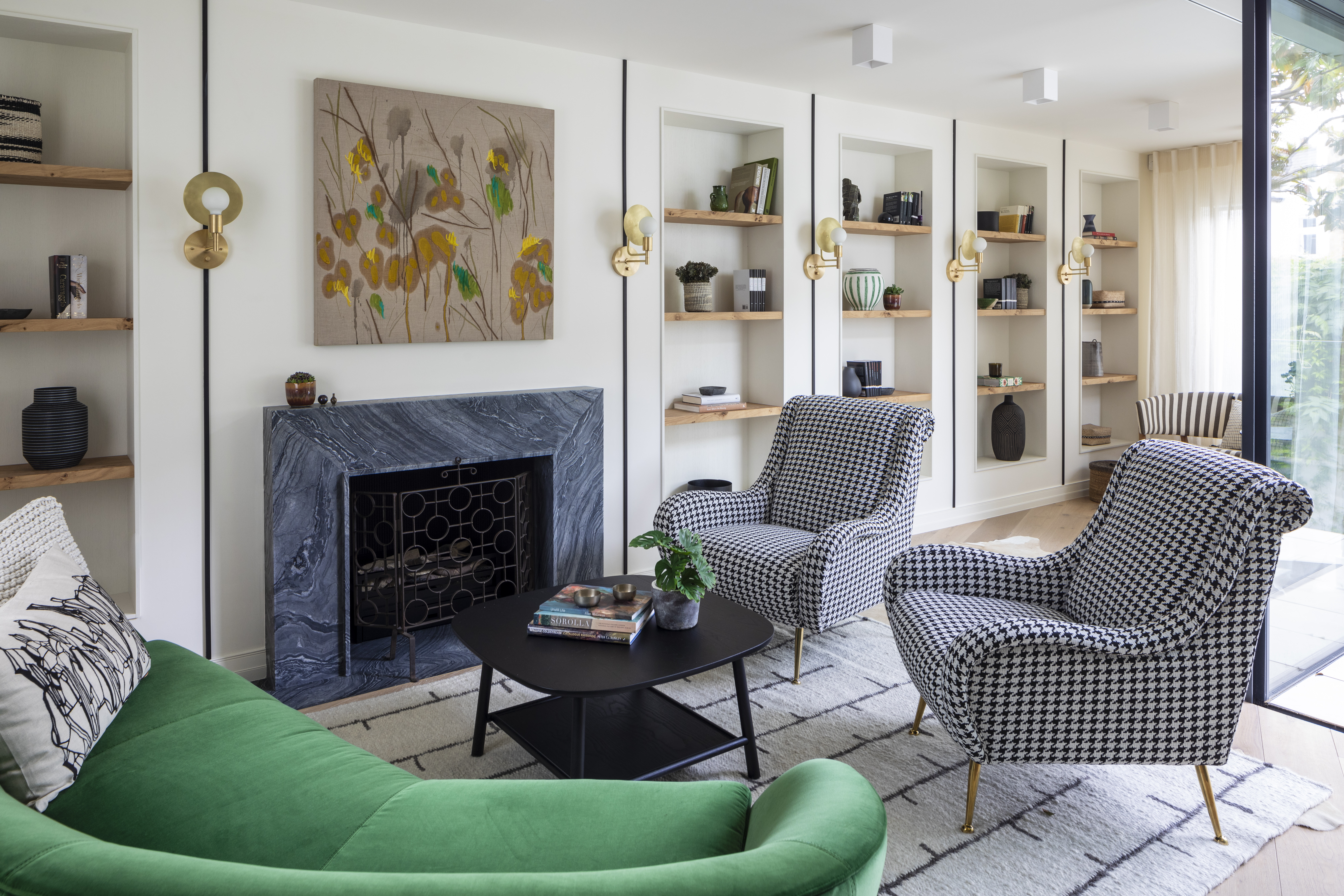
Living room rug ideas can be just as minimalist or maximalist as your scheme, but regardless, they have an important role to play in the design of your space.
Rugs not only act as a way to introduce color, texture and pattern into your living room, but can also be used effectively as part of your room's layout, adding structure that helps your furniture feel grounded.
But how do you pick the best rug for a living room? From size to styles, we've pulled together some of our favorite looks and advice for modern living rooms. Keep scrolling for our roundup of expert living room rug ideas.
Living room rug ideas to make a stylish statement
'Rugs transform a room and are wonderful for creating harmony, texture, pattern, color and, ultimately, a cozy lived-in feel in your home,' says Jane Rockett, of Rockett St George.
'They not only anchor a room, but they can also zone off spaces. Try playing around with different colors and textures in your living room to create clear and defined sectionsm,' she suggests.
'Rugs create an intimate conversation area, drawing attention to a particular area of a room and enhancing certain focal points,' explains Jodie Hatton, Design Manager at Brintons. 'Make sure at least a part of all pieces of the furniture touches the rug. This will give the area its own cohesive appearance and help define it as separate from the rest of the room.'
1. Channel a modern farmhouse aesthetic
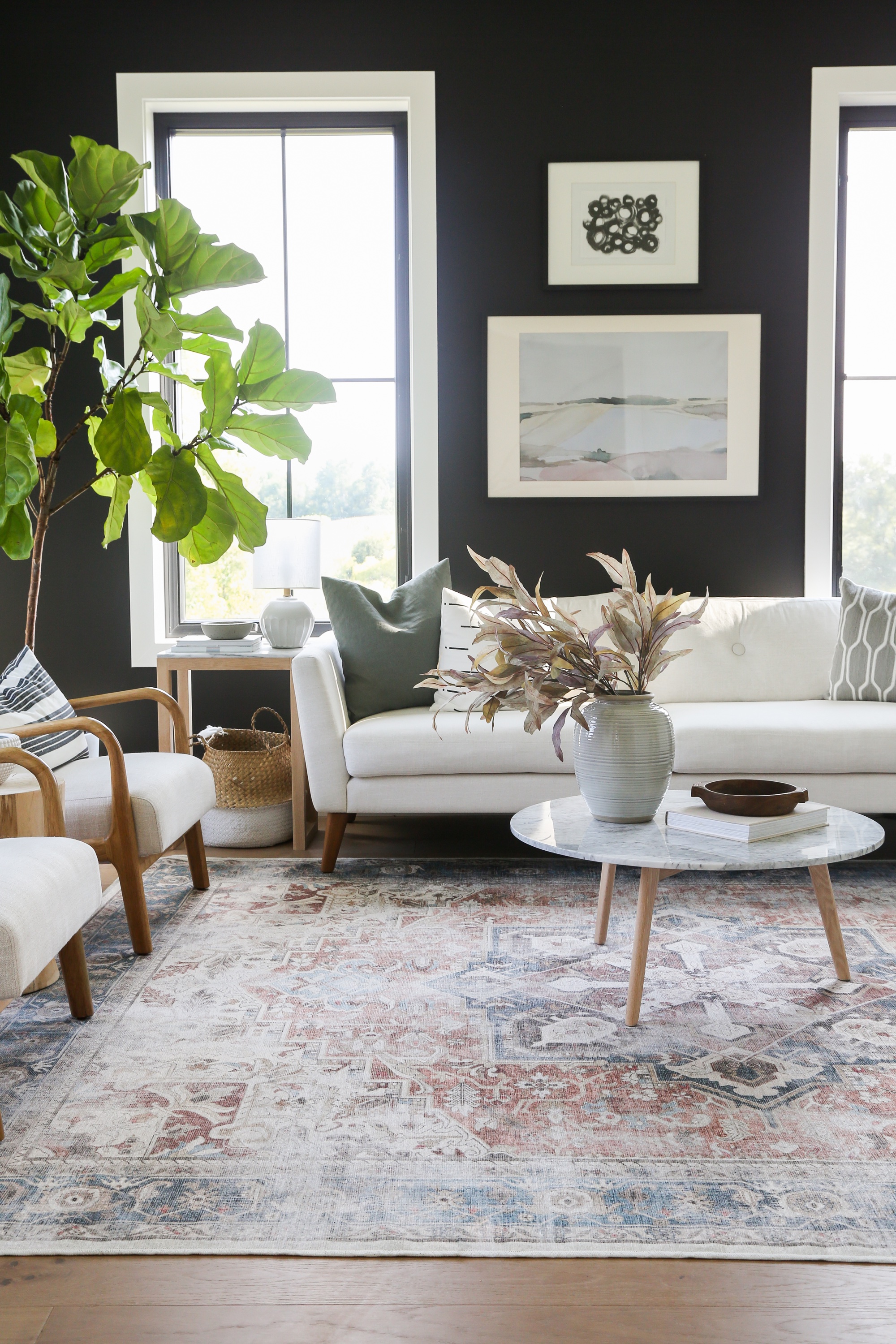
Modern farmhouse living room ideas have been gaining in popularity for some time now, and their characterful and inviting appeal shows no sign of waning.
The key to creating the look? A distressed rug paired with other sleeker features, like marble coffee tables and dark walls. An oversized fiddle leaf fig tree is also another great choice to finish the look, and makes a brilliant living room corner idea.
2. Choose natural, comfortable materials
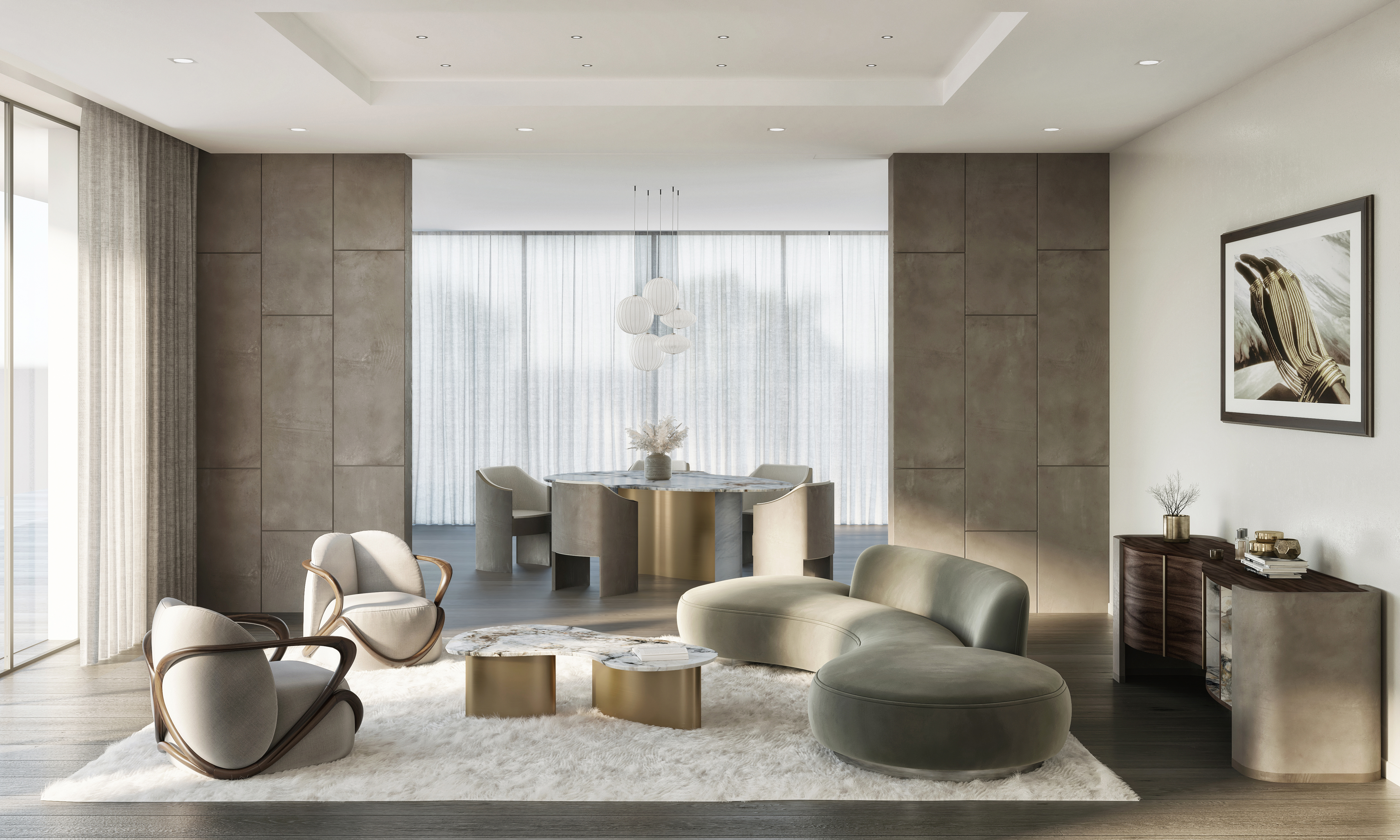
Our need to connect more with the outside world is reflected now more than ever in current interior design trends.
'Choosing natural materials is vital to this trend,' explains Juliette Thomas, of Juliettes Interiors. 'As a result, we are seeing wood, cotton and marble become an increasingly popular choice in our homes.
'A shaggy rug is extremely soft underfoot, and is the perfect balance between nature and comfort. Without a doubt, it adds an extra layer of warmth and comfort to your living room.'
3. Feel the vintage vibes for an on-trend look
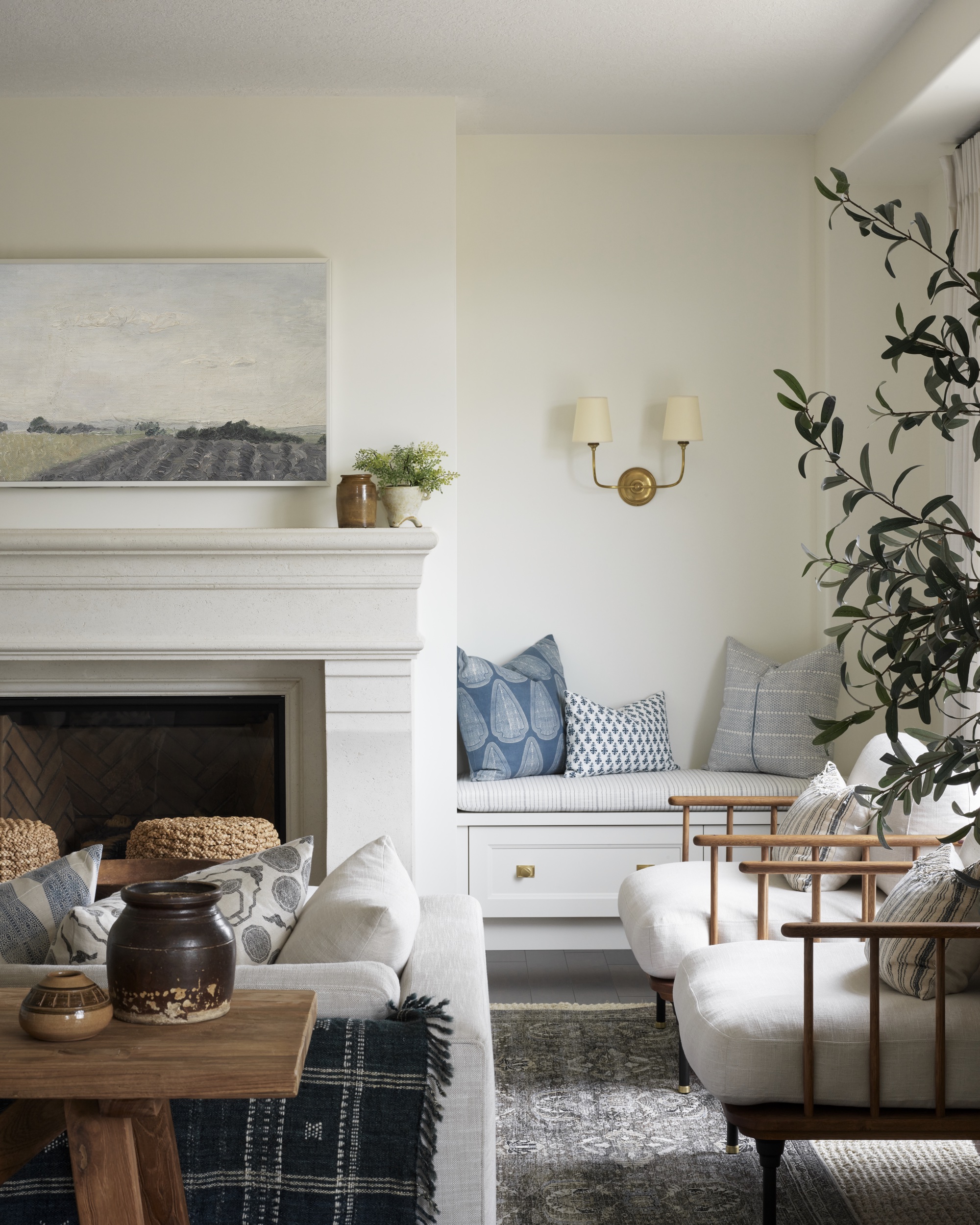
For an effortless, timeless appeal, look to vintage patterns and designs in rugs.
'We are really loving vintage-look rugs right now,' says interior designer Tiffany Leigh of Tiffany Leigh Design. 'While a true vintage rug is our preference, reproductions have come a long way and are more friendly on the budget.
'A heavier pattern on a rug hides the signs of daily life and mess well, while anchoring the space and adding color and personality to the room,' she continues. 'This living room above was large, so we layered a smaller vintage-look rug on top of a jute rug to fill the space and add texture and interest.'
4. Use a rug to create a cohesive color scheme
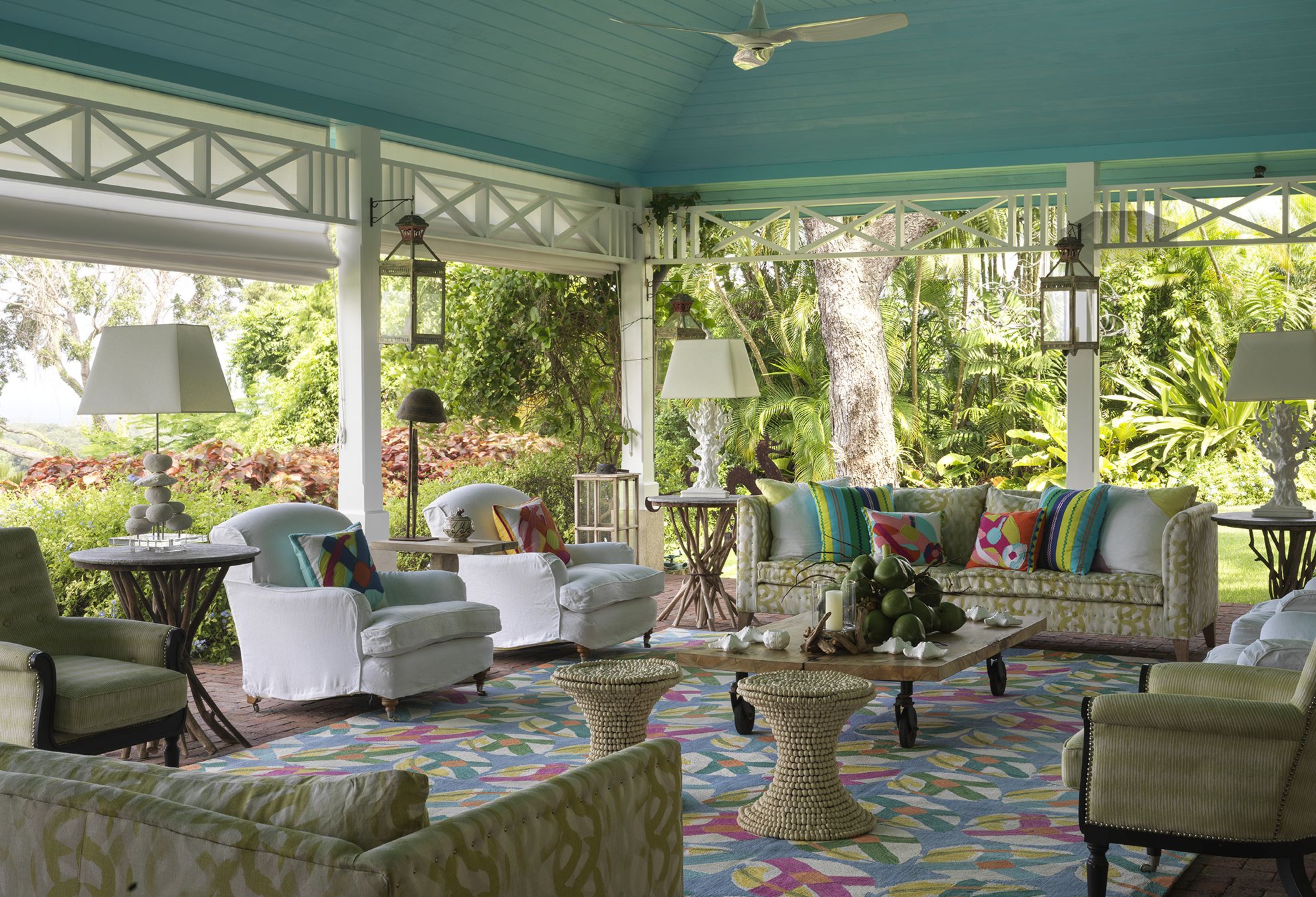
A rug is a brilliant tool to pull a color scheme together, creating a cohesive finished look. This scheme is a perfect example of how it could work, where Kit Kemp used a large area rug from her new collection to bring the space in her Barbados home together.
'A rug always works well as a frame for the seating area. It makes for a more unified space, bringing the scheme together,' she explains.
'In Barbados we painted our ceiling bright blue and when we introduced the Lily Pad Spring rug from the new Kit Kemp Collection for Annie Selke, it joyfully unified and grounded the space.'
5. Try botanical motifs
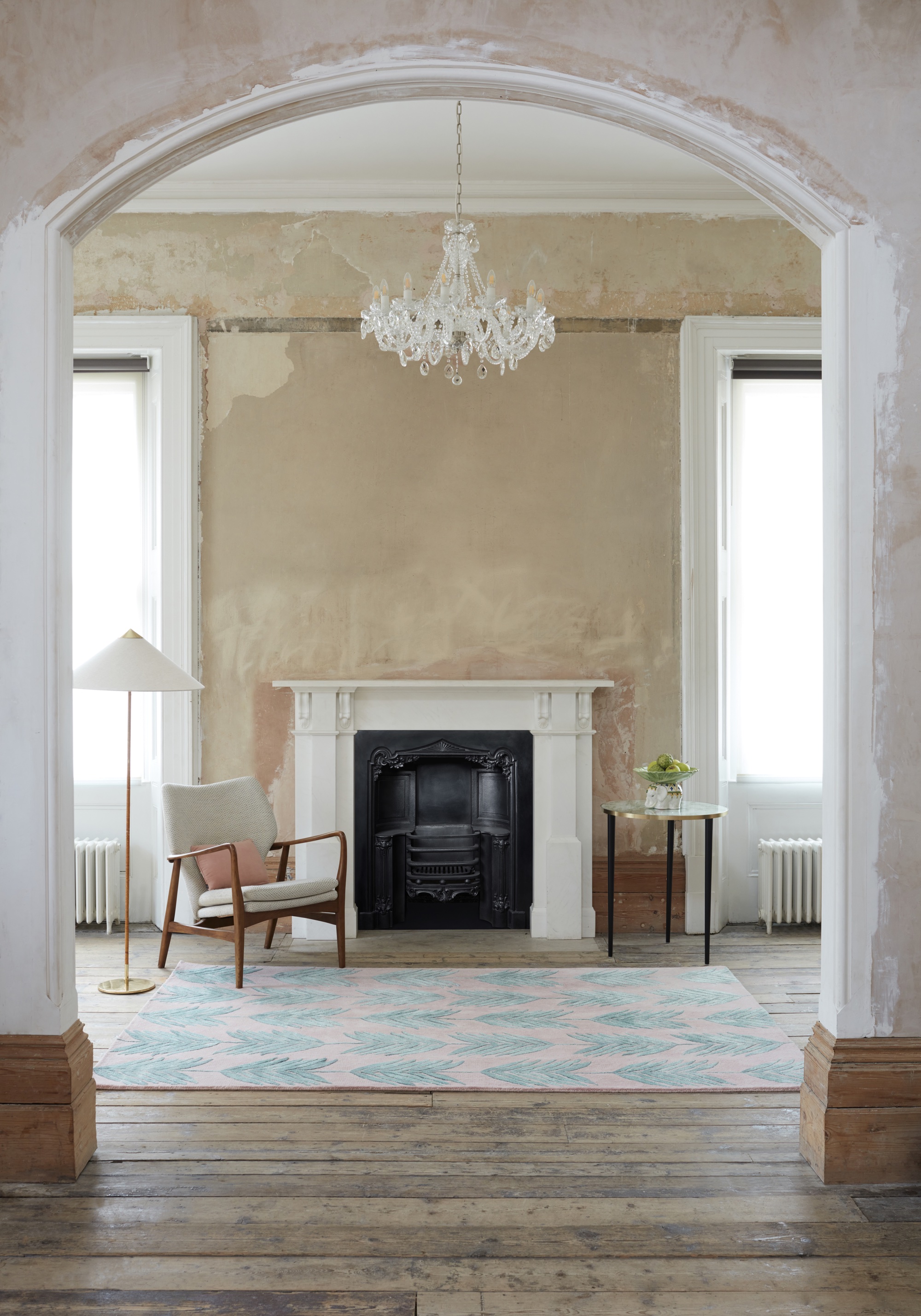
The natural living room trend doesn't have to always mean earthy, organic hues. The pandemic inhibited travel for many, and has seen a soaring interest in 'experiential interiors' that add a sense of adventure and vibrancy to our homes.
'One of the best places to start when bringing color and pattern into the home is with a floor covering, setting the tone and anchoring the rest of the space,' says Matthew Williamson.
'A beautiful rug can give you a palette or a sounding board for the rest of the room. You could pick out specific colours from the weave and take them onto the walls, into the soft furnishings and even up onto the ceiling for a dramatic look.'
'You could also experiment with pattern, pairing a leopard print rug with a striking floral wallpaper or sofa.'
6. Be bold with your color choices
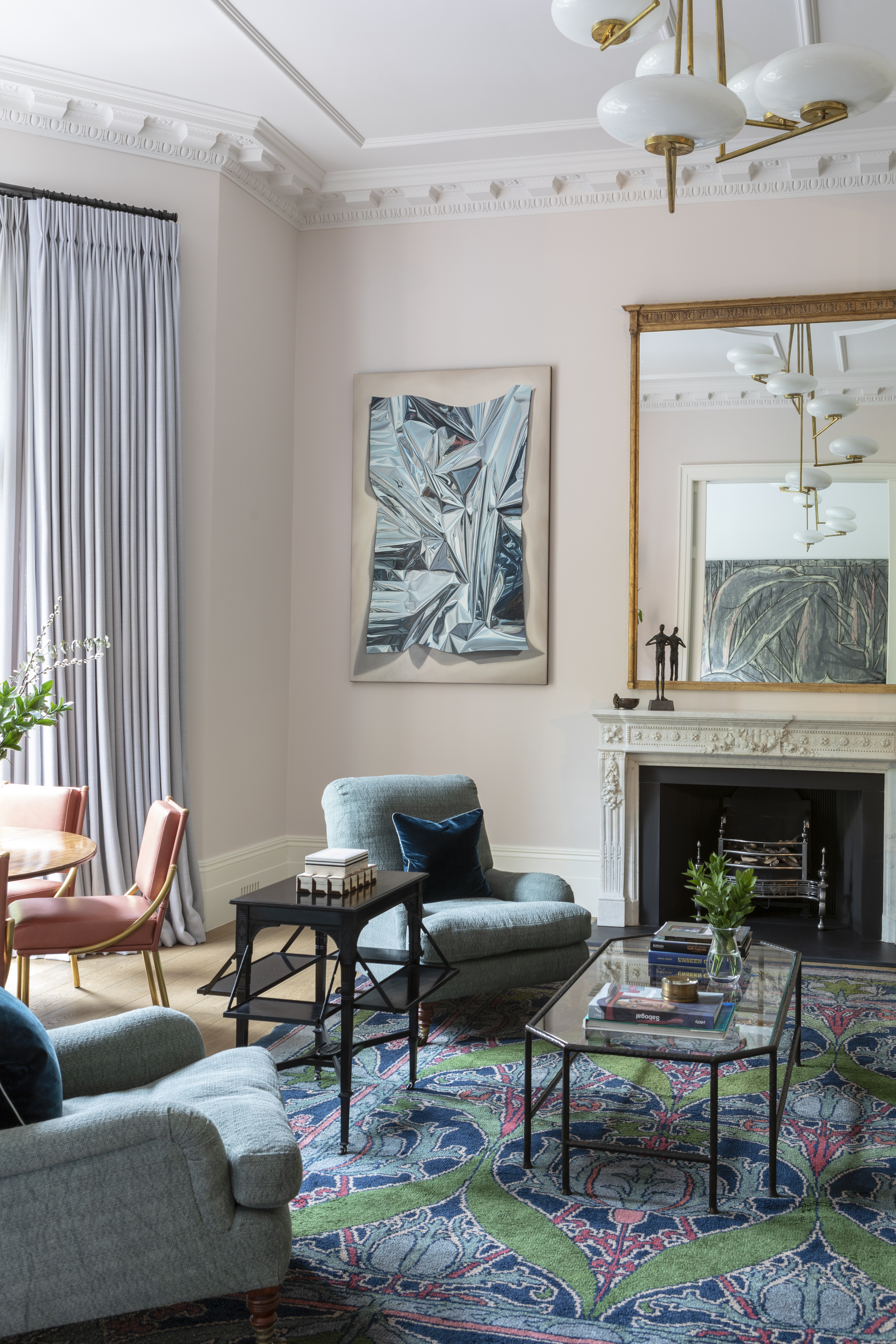
Don't be afraid to add use your rug to add some statement living room color to the space, as bright colours are replacing the safe greys that have dominated interior spaces.
'For some time we’ve seen greys, silvers and neutrals in chenille and wool flying out the door - they’re beautiful and make a space look calm,' says Chris Bond, director of The Rug Retailer. 'But now we are seeing a massive uptick in bright colors, especially abstracts and florals. Seems people have had enough of playing it safe.'
Dare to mix these bolder colors with your artwork too, for a scheme that's varied and visually interesting, as seen in the stunning space by Kitesgrove.
7. Choose a sustainable material and organic aesthetic
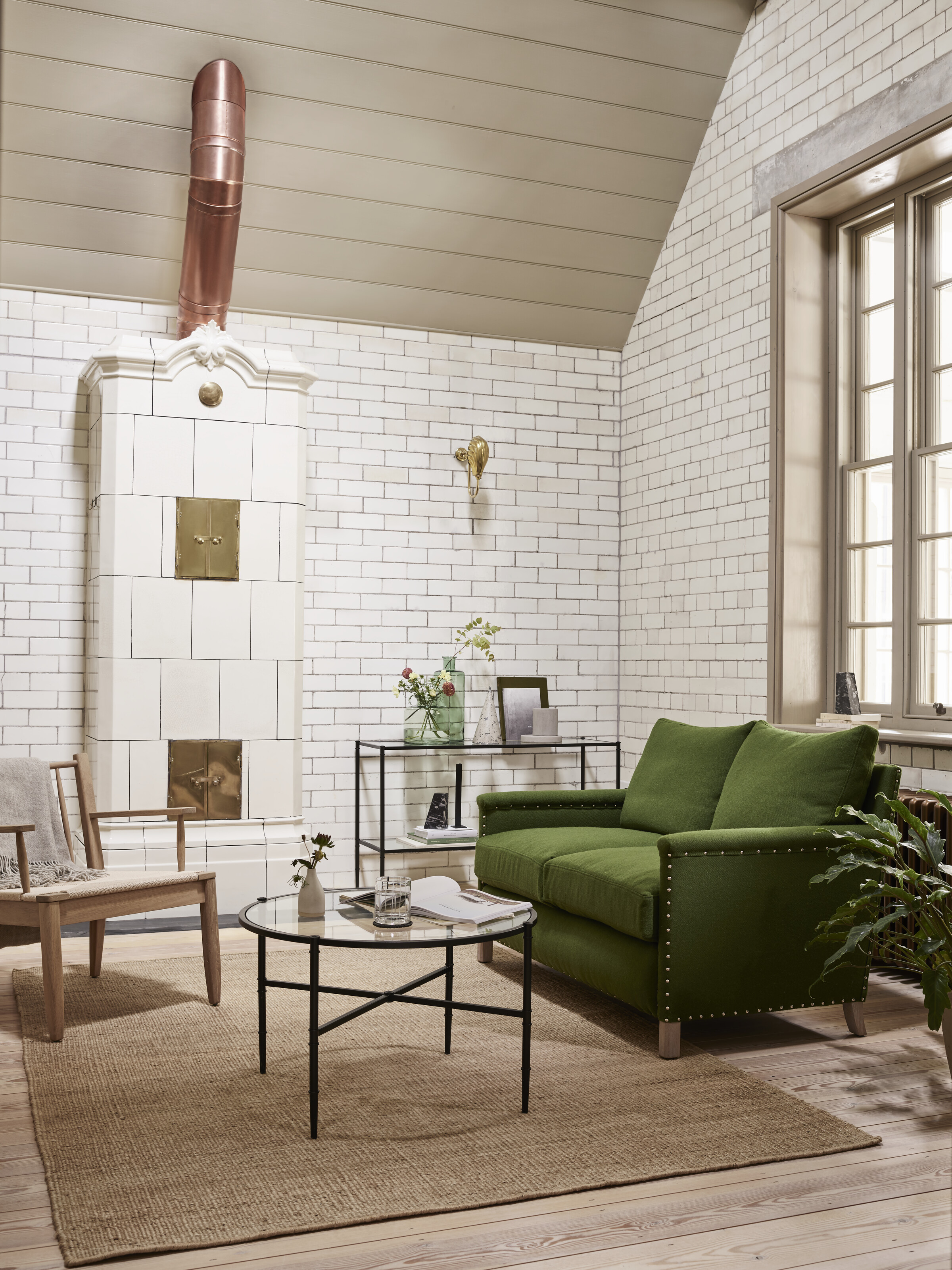
Ethical manufacturing and sustainable materials are becoming a core consideration for many interior design lovers.
Hemp is becoming increasingly popular for its eco credentials and easy maintenance.
Cassie Rowland, head of product development & knowledge at Neptune, says: 'If practicality is a concern, a hemp rug (like the brand's Whittigton, above) is a great option.
'Hemp is stronger than wool or jute, and is full of tonal variation and natural flecks which will help disguise small marks.
'The weave is relatively tight too (despite having plenty of texture), which makes vacuuming easier.'
She adds: 'Hemp is also a better choice for the environment than cotton, requiring far fewer chemicals in its production, and is a plant-based alternative to wool, making it completely cruelty-free.'
8. Go large with a supersized area rug
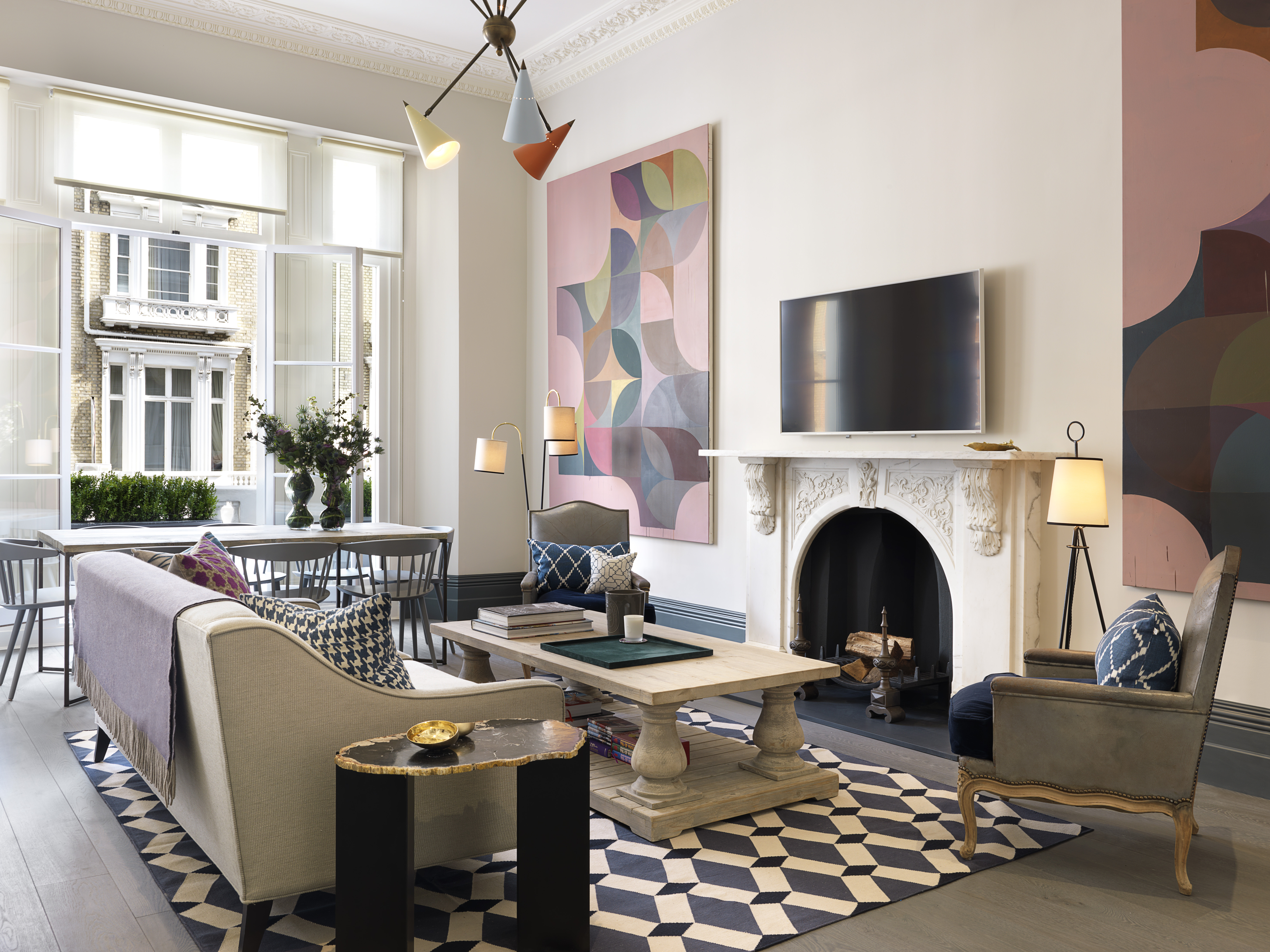
According to interior design experts, as far as rugs go, the bigger the better, especially when looking to create a cozy living room.
'I love a big rug to set the scene for the space,' says interior designer Kellie Burke of Kellie Burke Interiors. 'The bigger the rug, the larger the room and entertaining area feels. A minimum 3/4 of your sofa should rest on the rug; you don't want to look like you couldn't afford the bigger size!'
'A large sisal rug can create the parameters of the space while a well-placed focal point rug like an antique oushak sets the stage for pattern and color,' she continues.
Jane Rockett, founder of Rockett St George, agrees: 'Our advice is to always go for the largest rug you can afford in any room as investing in a statement rug helps to create a focal point of your floor and adds instant personality to your space.
'Rugs are also amazing for renters, with a large patterned rug perfect for creating a space that feels your own, whilst also hiding away any undesirable flooring underneath.'
9. Work clean-lined, contemporary abstract rugs
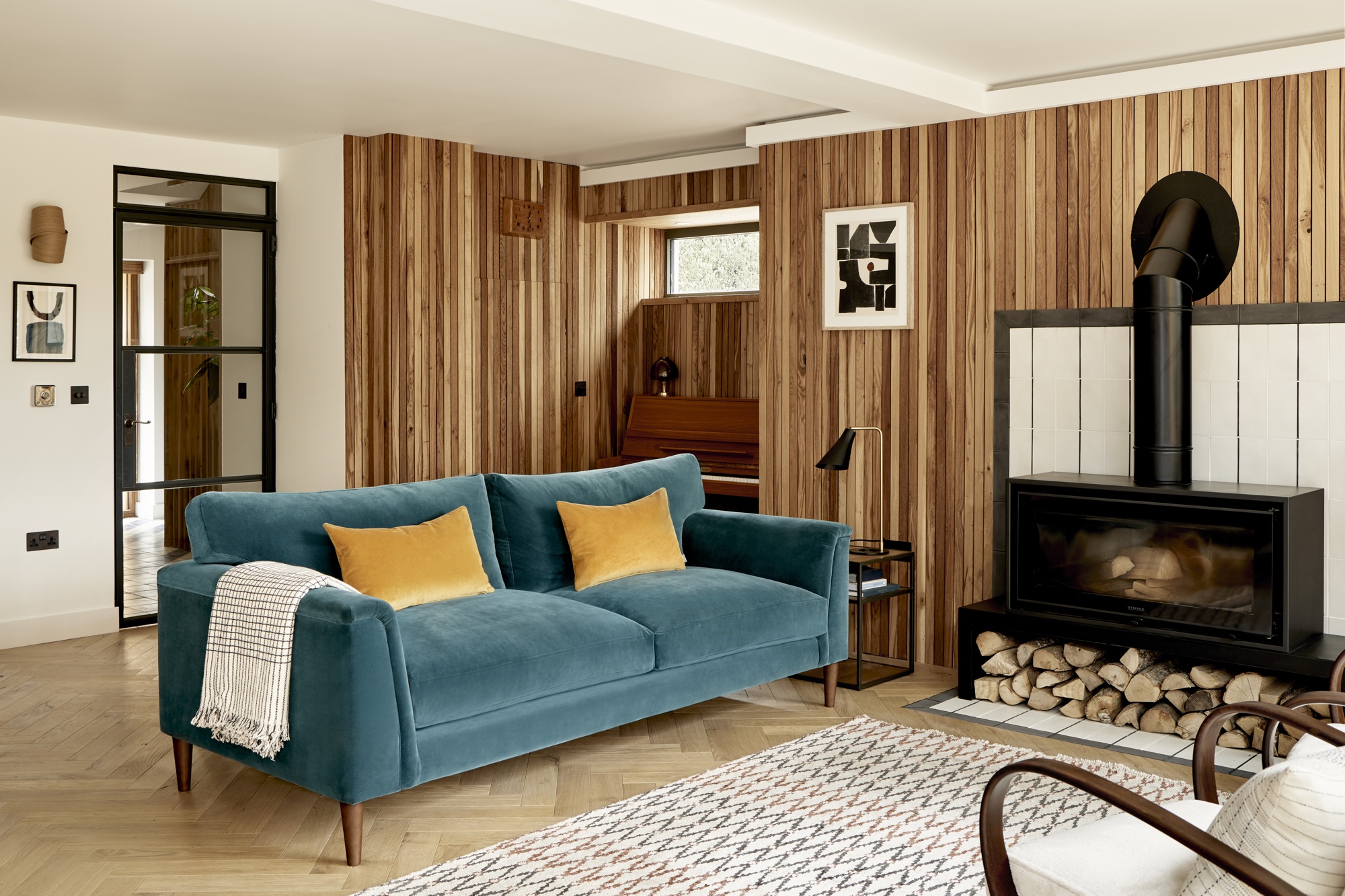
For a design-forward, modern look, choose minimal abstract prints that contribute to a calming, clean-lined scheme.
'Add a dash of minimalist charm to your interior with subtly abstract rugs,' says Juliette Thomas, of Juliettes Interiors. 'You can use rugs to get involved with the recent trend we have noticed, that of using straight lines and fewer accessories, to help deliver a cleaner look.'
The chevron is seeing a return to favor as a living room flooring idea, especially in a softer, chicer finish as seen above, while the use of lines echoes the popularity of line drawings in artwork.
10. Go neutral to let other statement pieces stand out
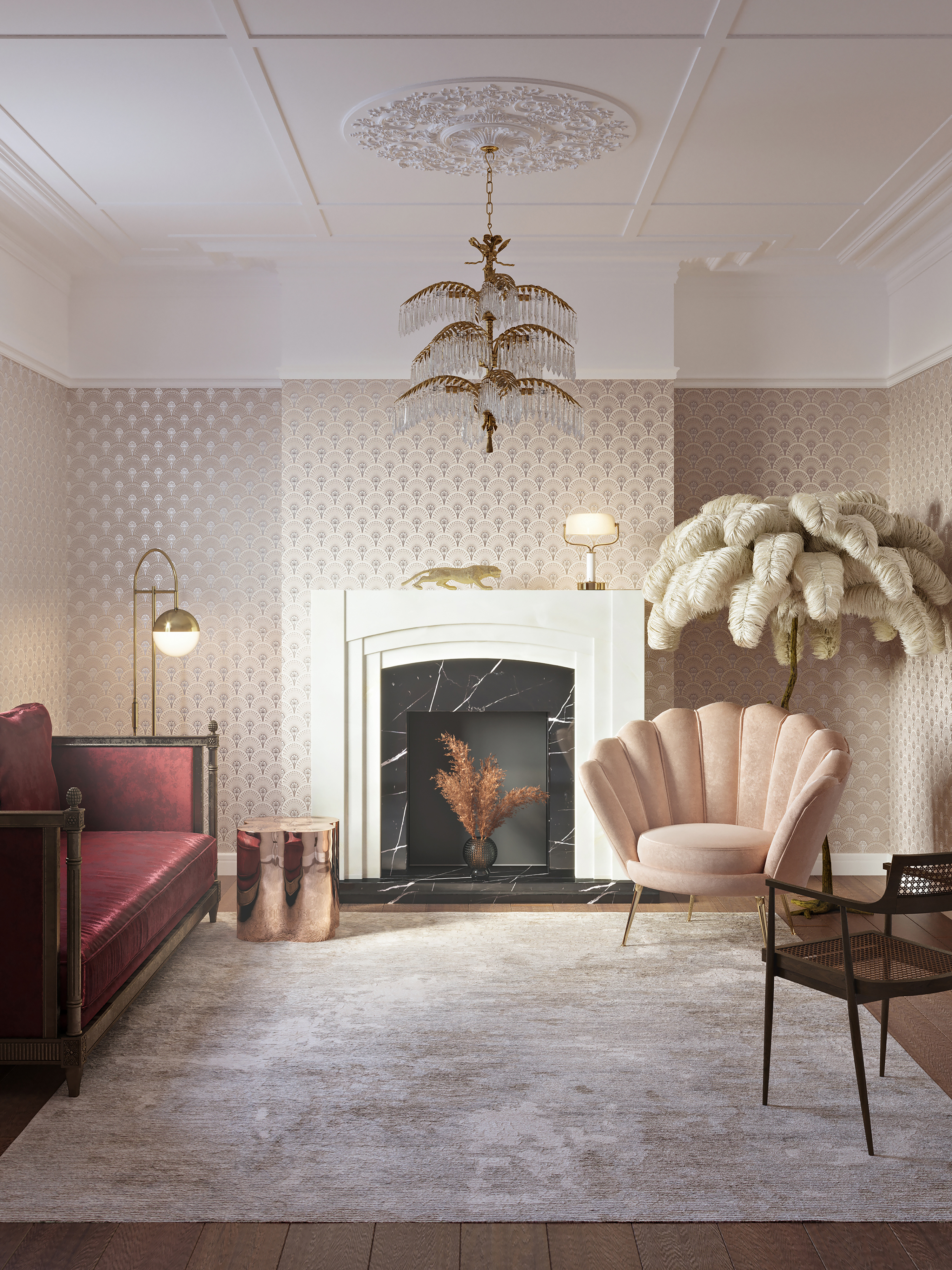
if you've already invested in beautiful focal features for an elegant living room, choose a neutral yet luxe rug to let the statement pieces sing.
The beautiful room above by Divine Savages sees a plush cream rug to allow the stunning Art Deco wallpaper, chandelier, fluted chair and palm corner piece to shine.
'Where a rug may not necessarily be the focal point of a room, it will still quietly do the work leaving the statement pieces dance in the spotlight,' says Martin Waller of Andrew Martin.
How do I choose a rug for living my room?
'When looking for a living room rug, consider the size of your space, the size of your furniture, and the various layout options,' says Therese Germain, Director of Core Product at Ruggable.
'We recommend you measure your current space and place your furniture in the area you wish to lay your living room rug on.
'Once your furniture is arranged, mark the area that you’d like your rug to cover with an easy-to-remove tape. You can use different colored tape to mark the different-sized rug possibilities.'
Interior designer Joshua Smith of Joshua Smith Inc, warns not to forget about comfort as well as aesthehtics. He comments: 'Choose a rug that you believe will feel good underfoot. The rug should bring comfort into the area while still looking good. Because this room will likely have a high volume of traffic, it’s also important to consider how easy the material will be to maintain.'
Cassie Rowland, of Neptune, agrees that maintenance is an important consideration. She says: 'One of the first things I’d consider when choosing a rug is how it’s going to wear over time. If you have pets or children at home and are vacuuming regularly, or if your living space is also a bit of a walkthrough, some rugs will quickly start to look shabby.
'I’d suggest steering clear of flat colors as well as anything with a loose or chunky loop pile that’s likely to catch on claws or fray with cleaning.'
And Jessica Lagrange, of Jessica Lagrange Interiors, advises to think about your decor scheme, adding: 'Rugs are a great accent piece in a living room. Choosing a rug that abides by the color scheme of the room will help the space look more cohesive and elevated. A patterned rug is a great way to add more interest.'
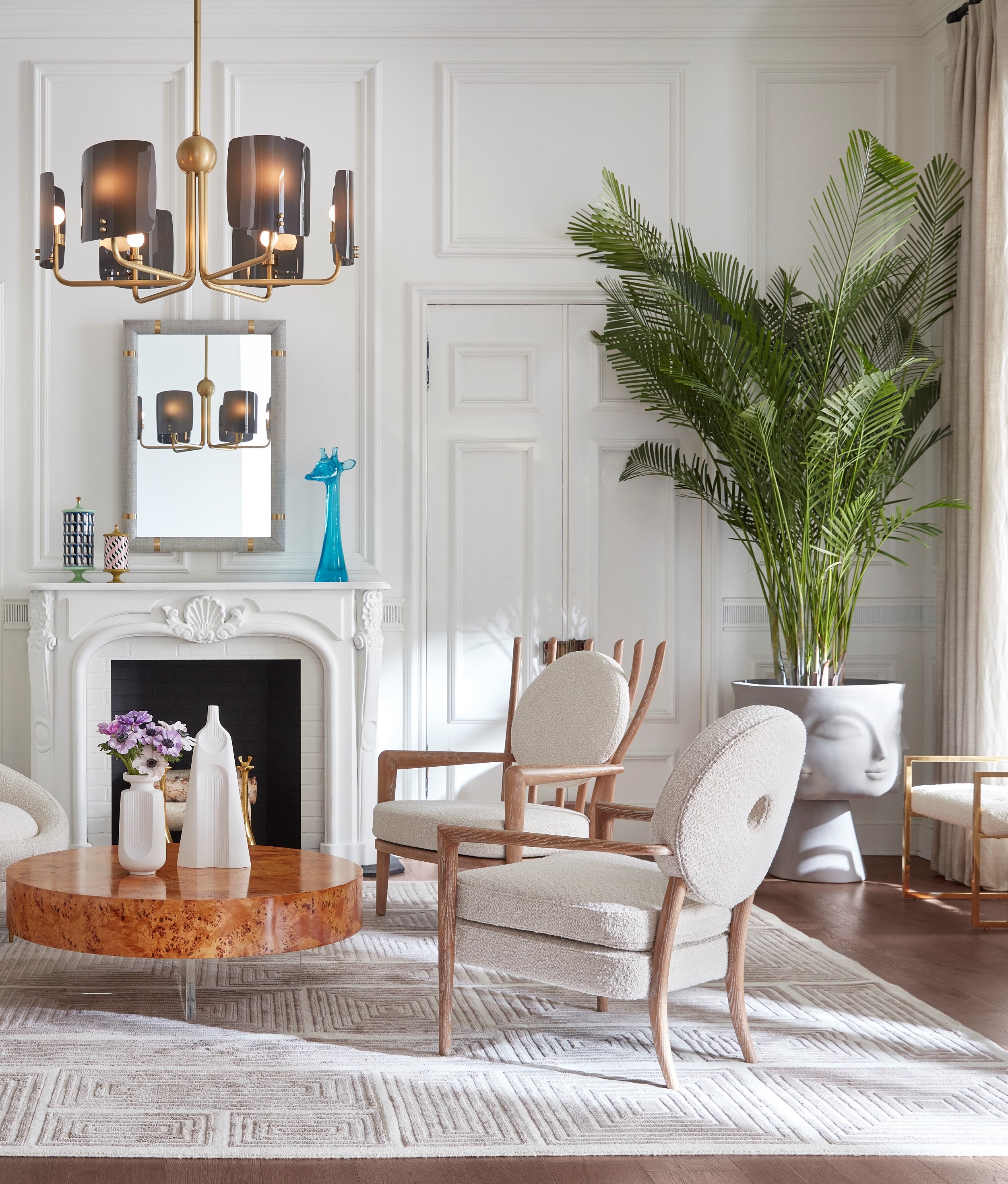
What is a good size rug for a living room?
This, of course, depends on the size of your living room.
'For large living rooms, it's best to leave at least 12 to 18 inches of visible floor space between your large rug and wall,' says Therese Germain, Director of Core Product at Ruggable .
'To unify the area, try to ensure that the front legs of your sofa and lounge chairs sit on the rug and overlap it by a minimum of 8 to 12 inches (more is better),' she continues. 'For open floor spaces, a greater contrast between the flooring and the rug will focus the eye on the rug, defining your space and creating a more intimate feel.'
Larger rugs are on-trend, and are the interior designer go-to. 'A large rug that will allow for the furniture to be placed fully on it is a good place to start,' comments Joshua Smith. 'If that seems overbearing in the space, downsizing to a medium sized rug can be a great alternative and still feel cohesive.
'Ideally, a rug should be at least 6” wider than your sofa on both sides.'
Michele Rodriguez-Wise, co-founder of L'una Design, says: It’s easy to make the mistake of purchasing a rug that’s too small for a space; the bigger the rug, the better!
'There are guidelines to help you understand how big a rug is required, which state that a floor border of 10cm is optimum between the edge of the rug and the wall or end of the zone. However, when we plan interior spaces at L’una Design, I tend to opt for a little larger space of around 20-30cms to help define the rug and create a bit of border and to showcase the floor underneath.'
And Jessica Lagrange adds: 'Select a rug that will still leave a border of bare floor around the room to create a concentrated living area.
'Larger rugs are preferred and will lead to a more unified look, but smaller rugs can still look intentional and trendy if placed properly among the furniture.'

How much of the couch should be on the rug in the living room?
The consensus among interior designers is the more of your furniture that you can fit on the rug, the better.
'If you have a large enough rug, all of the furniture should be placed upon it,' suggests Jessica Lagrange. 'Be sure to leave another two or three inches behind the back of the sofa to the edge of the rug.
'If you are working with a smaller rug, placing the front two legs of the furniture on it is enough.'
Joshua Smith agrees, saying: 'Place the entirety of the couch on the rug if that is possible.
'Otherwise, the front half of the sofa sitting over the rug is enough. If the furniture is completely off of the rug, it can look unbalanced.'
And L'una Design's Michele Rodriguez-Wise adds: 'The general rule of thumb is that half or more of the sofa should be placed over the rug.
'However, the most important thing to remember is that each space is different and whilst a small rug centered between a sofa and a television with no legs touching is a design no-no, spaces and styles can vary and you should consider both the functionality and style when choosing a rug for your living room.'
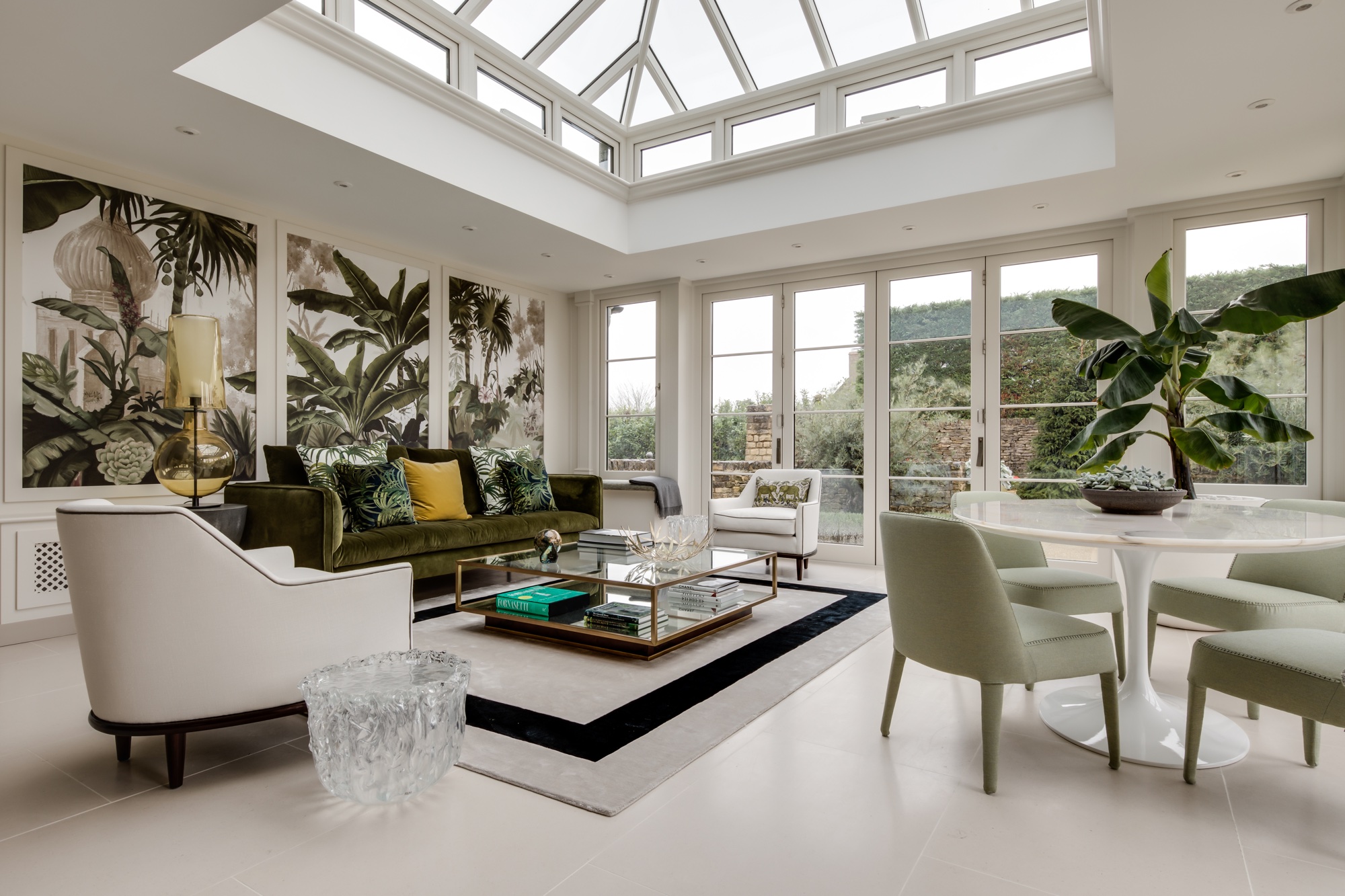
Be The First To Know
The Livingetc newsletters are your inside source for what’s shaping interiors now - and what’s next. Discover trend forecasts, smart style ideas, and curated shopping inspiration that brings design to life. Subscribe today and stay ahead of the curve.
Ruth Doherty is a lifestyle journalist based in London. An experienced freelance digital writer and editor, she is known for covering everything from travel and interiors to fashion and beauty. She regularly contributes to Livingetc, Ideal Home and Homes & Gardens, as well as titles like Prima and Red. Outside of work, her biggest loves are endless cups of tea, almond croissants, shopping for clothes she doesn’t need, and booking holidays she does.
-
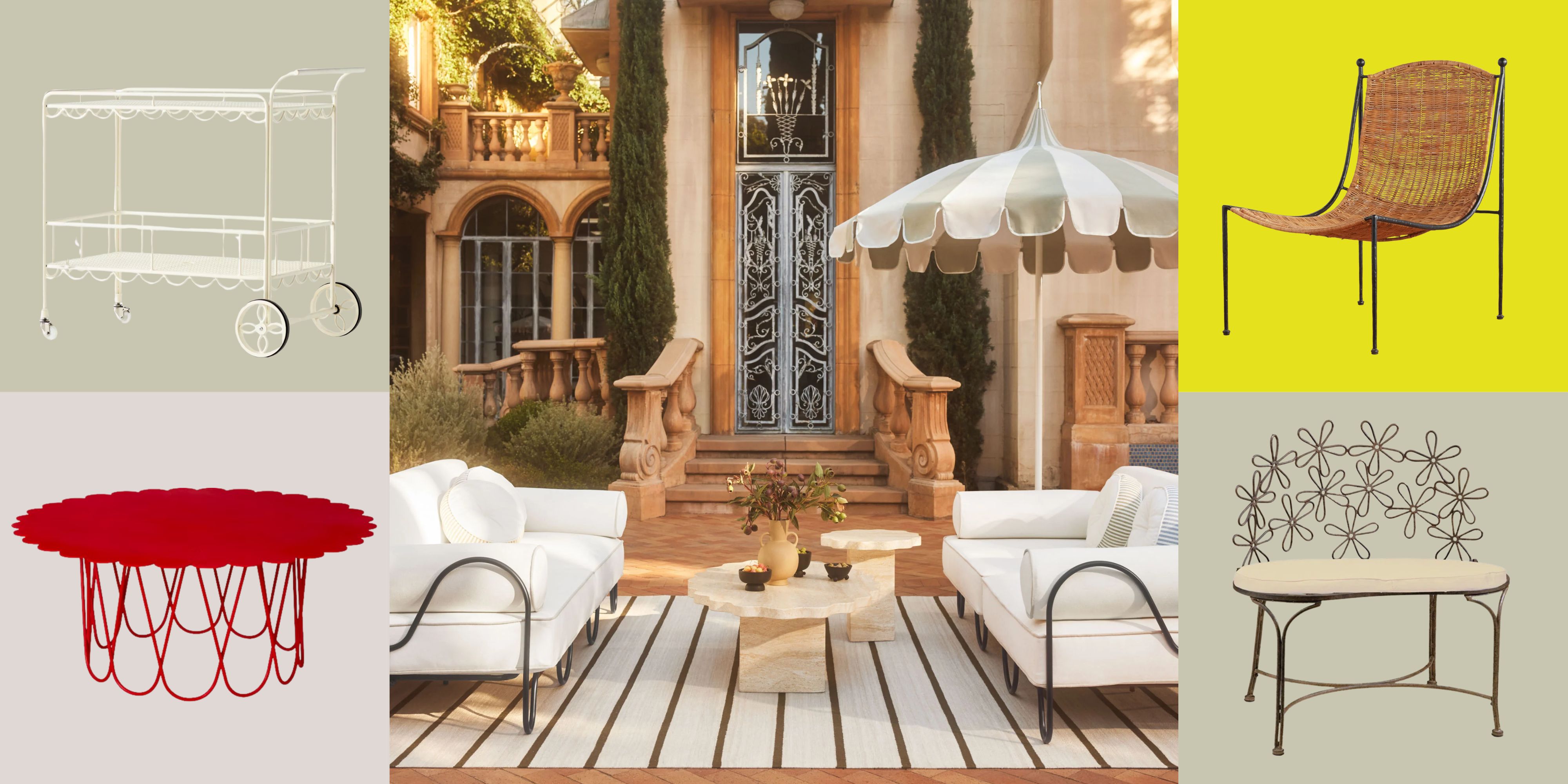 There’s a New Shape in the Garden — Why Whimsical Curves Might Be the Outdoor Furniture Silhouette of the Summer
There’s a New Shape in the Garden — Why Whimsical Curves Might Be the Outdoor Furniture Silhouette of the SummerPowder-coated petals, wavy lines, and a hint of surrealism — this microtrend is blooming, and we’re paying attention
By Julia Demer
-
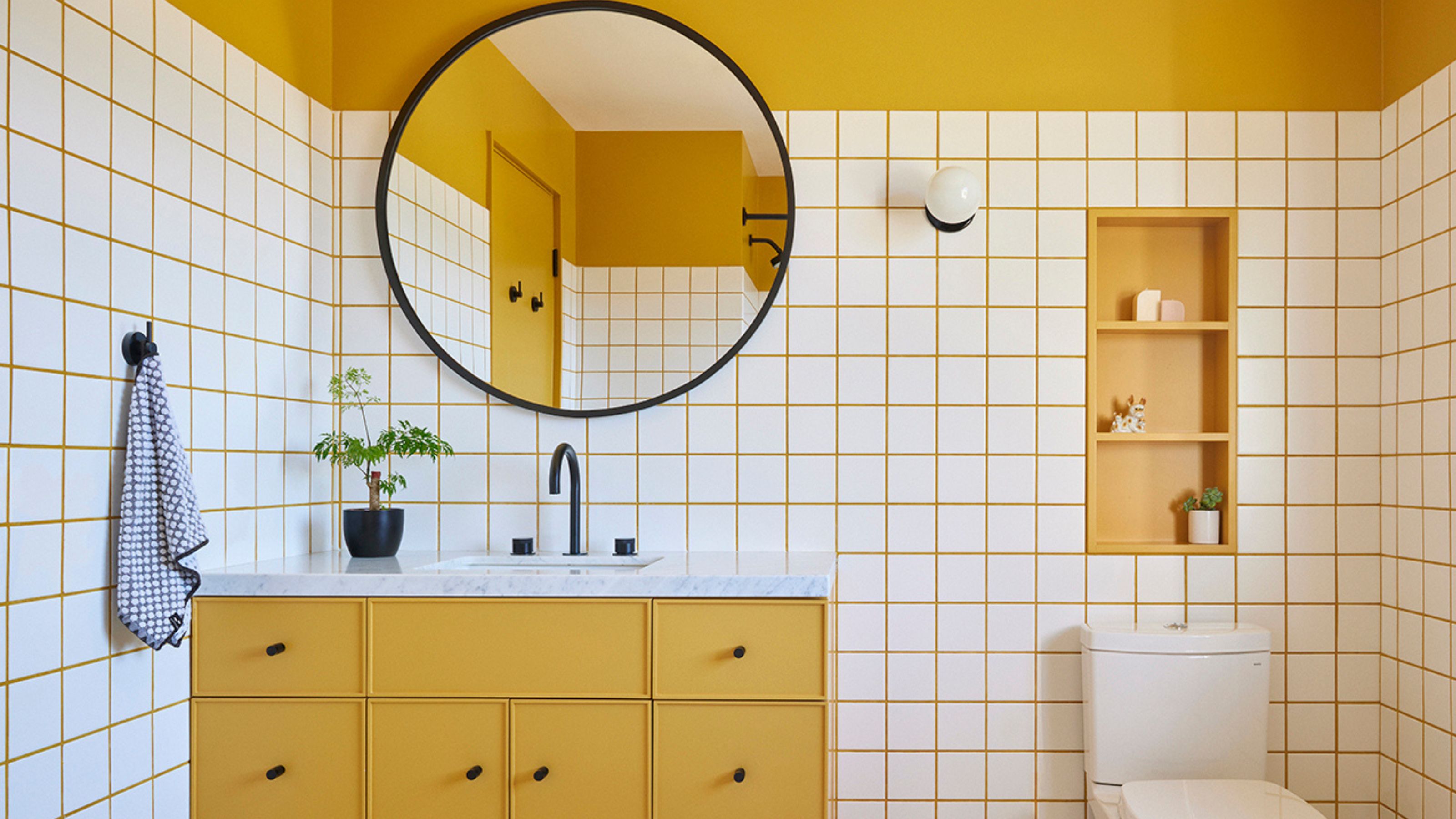 10 Yellow Bathroom Ideas That Vitalize Your Mornings and Look Unexpectedly Sophisticated While Doing So
10 Yellow Bathroom Ideas That Vitalize Your Mornings and Look Unexpectedly Sophisticated While Doing SoYellow is a color that by its very nature is energetic and full of life, and these designers have proved it's ideal for a bathroom
By Oonagh Turner